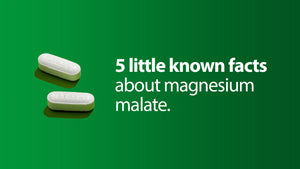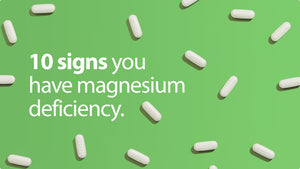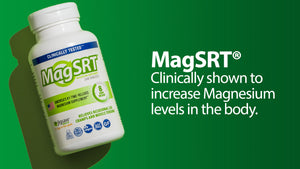What Should You Eat to Feel Better?
Improving your diet is paramount to improving your health. A healthy balance of protein, low-glycemic carbohydrates, and good fats in each meal or snack is highly recommended for restoring and maintaining your health.
Healthy food recommendations include:
- High-quality, organic, hormone- and antibiotic-free “grass-fed” meats – Purchase meat from companies that grass-feed their animals and allow them to grow at their normal rate (without growth hormones or antibiotics).1 Choose steak and other similar cuts of meat, rather than ground beef. Some ground beef can contain fillers and contaminants such as E. coli. This common bacterium normally resides on the surface of meat and is killed when the surface of the meat is cooked. The problem with ground beef is that E. coli can become dispersed throughout the meat during the grinding process. Eating a rare burger could be harmful because the center is not cooked and the E. coli remain alive. On the other hand, eating a rare steak is generally safe, because E. coli is killed on the surface during cooking, while the rare center is uncontaminated. Eating rare steak also preserves the healthy enzymes that are normally destroyed in cooking, allowing for easier digestion of the meat.
- High-quality, wild fish – Farm-raised fish are typically fed land-based diets that are low in omega-3 essential fatty acids and tend to be contaminated with polychlorinated biphenyls (PCBs). Wild fish, on the other hand, are not typically exposed to PCBs, and obtain their rich source of omega-3 naturally from their wild diet. (Note: Limit your intake of top predators on the food chain. These wild fish tend to have the highest mercury levels, such as albacore tuna, mackerel, and swordfish.)2
- High-quality fish oil – Fish oil is rich in omega-3 essential fatty acids, which play a crucial role in regulating mood, sharpening memory, and increasing mental concentration. The typical Western diet is depleted of this vital ingredient, which may explain the increased incidence of depression and other mood disorders.3 Fish oil should come from a high-quality, reputable source to avoid rancidity and heavy metal contamination.4
- Raw, organic vegetables – Heavy processing may destroy many of the essential nutrients normally found in raw foods, so the best option is to eat raw or quickly steamed produce. Choose organic to avoid pesticide exposure.5
- High-quality fiber – The average Western diet contains roughly about 8 to 10 grams of fiber per day. Also, fiber binds to cholesterol and lipids, among other substances, and eliminates them in the stool.16 That’s why a high-fiber diet is associated with lowering your cholesterol. Fiber helps move bowels, especially for those who suffer from chronic conditions like constipation. It also regulates bowel movements for those who suffer from chronic diarrhea. Fiber from plant sources are the best, since they are the most digestible. Choose organic flax meal and incorporate it creatively into the healthy foods that you normally eat to boost your fiber intake.
- Saturated fats – Although saturated fats have received a “bad rap,” they are actually essential fats for many body processes such as delivery of fat-soluble vitamins throughout the body.6 Organic extra virgin coconut oil is an excellent plant source of saturated fat. It can be eaten by itself or used in cooking. When used in cooking, it does not convert to trans fat.
- Sprouted whole-grain products – Instead of whole grain flours, choose sprouted grains. When grains are allowed to sprout, beneficial enzymes and short-chain fatty acids are released, which help protect and heal the gut.
- Nuts and seeds – These are perfect on-the-go snacks packed with vital nutrients and enzymes. To get the most benefit from raw nuts, they should be soaked and driedat a low temperature to activate important enzymes.
- Limited fruits – Candida (yeast) feeds on sugar, leading to overgrowth of bad fungi, and an imbalance of intestinal flora. While fruits offer vital nutrients, they should be limited to some degree due to their natural sugar content. Choose low-glycemic fruit such as apples and oranges.
- Organic, cage-free eggs – Choose high-quality eggs that come from healthy, well-treated, cage-free hens.7
- Unpasteurized, raw dairy items – Butter, cream, milk, yogurt, kefirs, and other lacto-fermented foods offer supreme nutritional value as long as you do not have casein and lactose intolerances. Choose products with active, live cultures such as L. acidophilus. Avoid products that are pasteurized and/or homogenized, since these processes alter the natural, healthful properties of most dairy products.
- Protein shakes – Those with chronic conditions characteristically need more protein in their diet. Often times it is not possible to prepare a nutritious meal when you don’t feel well or are in a hurry. Protein shakes provide a convenient method to get high-quality food into the body.Whey protein powders are often recommended, and for some they work great. However, those who are sensitive to dairy products may have a hard time tolerating whey, since it is a protein found in milk.8 Good alternatives include rice protein and/or egg-white protein shakes.
- Water – Water is what your body requires and craves the most. For those suffering from chronic conditions, it is best to cut out all soft drinks, coffee, and sugary fruit juices, and start drinking purified, toxin-free water throughout the day. Some experts believe you should drink 8 glasses a day. Others believe you should drink water when you are thirsty, following the body’s natural mechanism for craving. The important point is that you need to drink water, and probably more than you are drinking today! (Note: Tap water often contains many harsh chemicals and heavy metals. Chlorine, to name one, can alter the intestinal balance of bacteria by killing off the good bacteria that reside in the intestines.)
What Should You AVOID to Feel Better?
- Processed carbohydrates – These generally have a high glycemic index, are digested quickly, and rapidly spike blood sugar levels. They include refined sugar, white bread, pasta, cookies, cakes, crackers, potato chips, and many junk foods.
- Refined sugars – These add empty calories to foods, leading to excessive, non-nutritive calorie consumption. The absence of nutrition leads to vitamin, mineral, and amino acid deficiencies that set the stage for chronic conditions.
- Artificial, non-nutritive sugar substitutes – All foods containing aspartame, sucralose, mannitol, sorbitol, Splenda®, Equal®, and Sweet and Low® have potentially negative neurological side effects.9 Use raw honey or stevia as a natural alternative.
- Alcohol – Alcoholic beverages in excess are very damaging to the body, particularly the liver, and the brain. The body uses many vitamins and minerals to detoxify alcohol from the body. This can lead to a depletion of these vitamins and minerals which can lead to a spectrum of other problems. Learn more about vitamins, minerals, and amino acids.
- Fermented foods – Such as cheese and wine. These can aggravate Candida overgrowth.
- Caffeine – Excessive caffeine intake should be avoided. While moderate amounts of caffeine may be beneficial, excessive consumption can disrupt the body’s systems, causing insomnia and digestive irregularity (constipation or diarrhea).10
- Fungi – Such as mushrooms. These can that aggravate Candida overgrowth and disrupt the balance of intestinal flora needed for good digestion.
- Pickled foods – Such as pickled vegetables, mushrooms, and relishes. These can aggravate Candida overgrowth and other chronic conditions due to the presence of mytotoxins in foods that are not pickled properly.11
- Fruits juices – Heavy consumption can aggravate Candida overgrowth due to their natural sugar content. Fruit juices spike blood sugar levels rapidly and provide unneeded calories without the healthy fiber that’s needed for good digestion.
- Soft Drinks – Carbonated drinks that contain caffeine and phosphoric acid dramatically alter the body’s pH to make it more acidic, and prevent absorption of calcium and magnesium.12
- Bottom crawlers – Seafood, such as oysters, clams, and lobster are known to contain toxic levels of heavy metals such as mercury.
- Deap sea fish – Fish such as albacore tuna, mackerel, and swordfish are known to contain the highest levels of mercury.13
- Wheat products – Wheat, and gluten (a wheat protein), are very hard for the body to digest, especially for those who have Celiac Disease.
- Sodium nitrite – Found in processed foods such as hot dogs, lunch meats, and bacon. Some studies have shown that children who eat hot dogs more than once a week have a higher risk for brain tumors.14
- Trans fats – Are produced by hydrogenating oils. These are found in many processed baked goods, deep-fried foods, fast food, and junk food.
- Mono-sodium glutamate (MSG) – Found in many foods as a flavor enhancer. (Check food labels for this additive). Some people are sensitive to glutamate and suffer from a host of negative side effects when eating MSG (also known as the “Chinese Food Syndrome”).
- Artificial colors, preservatives, and flavors – These are added to prolong shelf-life and increase consumer appeal (with fancy colors and flavorings). Many are suspected in causing behavioral disorders, ADD, and learning disabilities. Many are also considered carcinogens.
- Tobacco – Cigarettes contain over 4,000 chemicals, all of which are extremely toxic to the body, and cause many diseases, starting with Chronic Obstructive Pulmonary Disease (COPD).15
- Nightshade vegetables – A small percentage of people experience a bad reaction to nightshade vegetables, such as tomatoes, eggplants, potatoes, and peppers (chili, green, red). These may cause gastrointestinal upset such as heartburn and indigestion. Avoid these if you have a bad reaction to these foods.
While improving your diet will almost surely help you feel better, it still may not be enough. High-quality supplementation is recommended, in addition to a healthy diet, to ensure that your body is receiving all the elements it needs to restore itself and to begin functioning better.
"I know firsthand that it can get very confusing when trying to figure out which diet plan to follow since everyone claims to have the answer. But I am not trying to push the latest, greatest diet onto you. All I ask is that you take a look around. Do people seem to be getting more, or less healthy?
The diet “rule” that I begin with is this: If God made it, it is usually good. If humans have altered it to make it last longer on a store shelf, or more convenient for mass-production, it is probably bad."
- Excerpt from WELLNESS PIECE BY PIECE,by Pat Sullivan
Cited Sources:
1) Eat Wild. The Clearinghouse for Information about Pasture-Based Farming
http://www.eatwild.com/
Accessed June 2005
2) “Farm Raised Salmon Contains More Toxins than Wild Salmon,” BreastCancer.org
http://www.breastcancer.org/research_farm_raised_salmon.html
Accessed June 2005
3) The Omega-3 Connection. The Groundbreaking Omega-3 Antidepression Diet and Brain Program,
Stoll, Andrew L., M.D.
4) “New Guidelines Focus on Fish, Fish Oil, Omega-3 Fatty Acids,” American Heart Association
http://www.americanheart.org/presenter.jhtml?identifier=3006624
Accessed June 2005
5) The World’s Healthiest Foods
http://www.whfoods.com/
Accessed June 2005
6) “Caustic Commentary,” Weston A. Price Foundation
http://www.westonaprice.org/causticcommentary/cc2004sp.html
Accessed June 2005
7) “Wild Oats and Whole Foods Show Compassion with Cage-free Egg Policies,” The Humane Society
http://www.hsus.org/farm_animals/farm_animals_news/wild_oats.html
8) “Why Did You Switch from Whey Protein to Isolated Soy Protein?” News Target.com
http://www.newstarget.com/001979.html
Accessed June 2005
9) Aspartame Toxicity Information Center
http://www.holisticmed.com/aspartame/
Accessed June 2005
10) “Gastrointestinal Health,” Dr. Weil
http://www.drweil.com/u/HC/HCA259/
Accessed June 2005
11) “Molds on Food: Are They Dangerous?” Food Safety Focus from USDA
http://www.fsis.usda.gov/oa/pubs/molds.htm
Accessed June 2005
12) “Liquid Candy: How Soft Drinks Are Harming Americans’ Health,” by Michael F. Jacobson, Ph.D.
http://www.cspinet.org/sodapop/liquid_candy.htm
Accessed June 2005
13) “What You Need to Know about Mercury in Fish and Shellfish,” U.S Environmental Protection Agency (EPA) Fish Advisories
http://www.epa.gov/waterscience/fishadvice/advice.html
Accessed June 2005
14) “Labeling of Nitrite Content of Processed Foods,” American Medical Association
http://www.ama-assn.org/ama/pub/category/13654.html
Accessed June 2005
15) “Chronic Obstructive Pulmonary Disease (COPD),” American Lung Association
http://www.lungusa.org/site/apps/s/content.asp?c=dvLUK9O0E&b=34706&ct=294905
Accessed June 2005
16) “Consumption of Fiber Reduces the Risk of Colorectal Cancer,” American Longevity http://www.americanlongevity.net/misc/fiberconsumption.php
Accessed June 2005




















